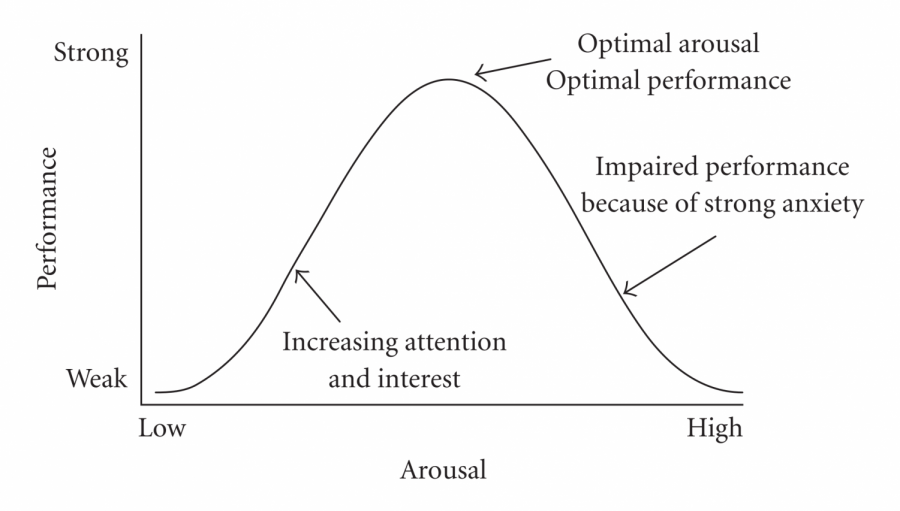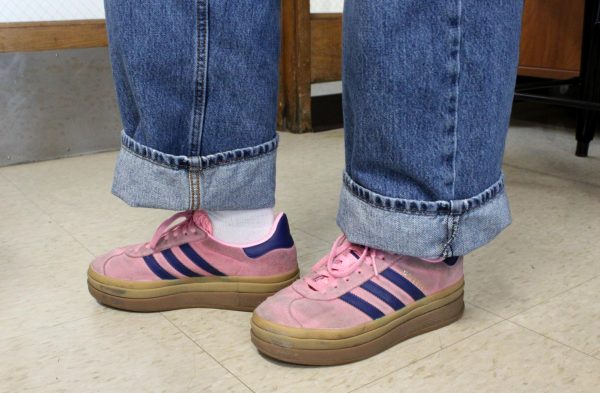Cockiness V. Confidence
The Yerkes-Dodson Law is the relationship between both arousal and performance. This shows that an athlete’s performance increases with mental arousal up to a certain limit.
Ever since I was a kid, I was told by my parents to believe in myself. My cross country coach has always told me that, in order to achieve something, it all starts with having “the mentality.” But does mentality mean knowing you can or letting people know you can?
As a kid during the summers, I always attended the LHS summer basketball camps. It was there one of the LHS athletes first said to me, “you got to be cocky to be good.” That quote has always made me think: What’s the difference? And what’s better?
According to LHS AP Psychology teacher Ms. Kara Bosman, cockiness has a sense of arrogance and some insecurity; there’s a lot of bravado. You have trust in your training, preparation and abilities, in order to be confident..
The cocky athlete always seems to be a bad teammate and is very selfish. It is like having a parasite in the locker room.
In addition, there are teams that can be cocky as well. We see it all of the time; the teams come in overconfident and end up playing down to their competition. How could a number-one seed lose to a number-sixteen seed if that wasn’t true? My apologies to all of the Virginia fans who are still mad about that.
The Yerkes-Dodson curve states that we want moderate amounts of stress, so if we are truly unstressed (cocky), we are going to underperform and make silly mistakes. On the other end, if you’re overstressed against a really good team, you still can make mistakes.
“You need to find that median because one cocky person on the team can destroy those levels,” stated Ms. Bosman.
It happens in professional sports as well; there are teams that feel like practice isn’t that big of a deal because of who their upcoming opponent is and get cocky about it, but the other team — who has been working their butt off — comes into the game confident.
It is better to be confident in yourself. You need to believe in your ability but not over believe. When you become overconfident, it becomes cockiness. As far as not becoming overconfident, it is about trusting yourself while being humble at the same time.
For those who aren’t truly into sports, in TV shows, when the guy is trying to get a girl’s number, she always goes with the guy who is genuine and confident in himself, not the cocky guy who would rather check himself out in the mirror than her.
As an athlete myself, I have seen and been the cocky athlete. They always lose. They come in telling everyone that they can, and they don’t. They’ll start the first couple minutes of the game, meet or match too strong or too slow and don’t come back from it.









